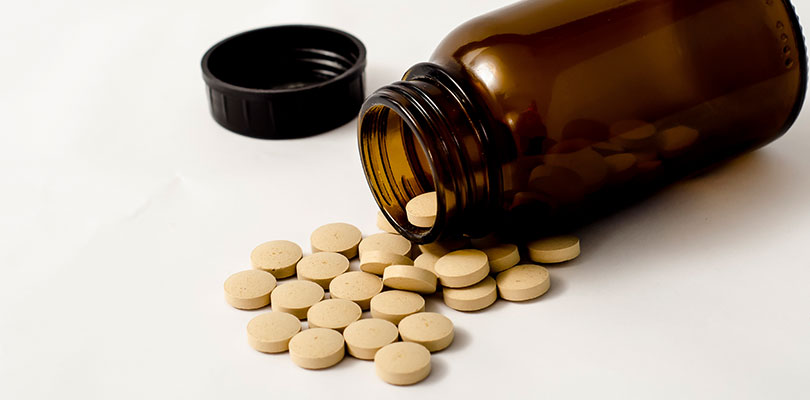Heart Disease and Menopause
In the U.S., heart disease is the leading cause of death for women of all ages. However, the risk increases significantly for women who have gone through menopause. Here’s all you need to know about heart disease and menopause. We’ll discuss how the two are related, possible symptoms and how to reduce the risk.
What Is Heart Disease?
When people use the term heart disease, they are usually referring to coronary heart disease (CHD), or coronary artery disease (CAD). In this condition, the blood vessels become narrow or blocked, limiting blood flow to the heart. Narrowing of the blood vessels is something that happens naturally with age.
Over time, their elastic walls lose flexibility and become stiffer. Substances like cholesterol can also build up inside the vessels and form deposits called plaques. This is known as atherosclerosis. Atherosclerosis and CHD are major problems, as they lead to angina, heart attacks and strokes. They are also associated with other serious conditions such as high blood pressure and diabetes.
Heart disease can also involve problems with the heart muscle itself, including arrhythmias (irregular heartbeat) or valve dysfunctions. Like CHD, these issues can potentially be fatal.
How Is Heart Disease Linked to Menopause?
Many people associate heart disease with men but it affects women just as often. The main difference is that women tend to develop heart disease later than men, usually following menopause.
The average age of menopause is 51 and many women develop heart disease in their 60s. This is primarily due to falling levels of estrogen, one of the major female sex hormones. As women approach menopause, their estrogen levels decline gradually, causing a variety of symptoms. In addition to hot flashes and night sweats, menopausal women may suffer from mood disorders, insomnia, vaginal dryness, and more. It is this loss of estrogen that also means post-menopausal women have a higher chance of suffering from heart disease.
How Does Menopause Cause Heart Disease?
Estrogen has a protective effect on many of the body’s tissues, including the artery walls. It keeps them supple, meaning that blood can pass through without exerting too much pressure. When estrogen levels drop, the arteries begin to stiffen. This means that the force of pumping blood on the artery walls increases, causing high blood pressure.
Low estrogen levels can also allow fats, called triglycerides, and dangerous LDL cholesterol to accumulate in the vessels. Meanwhile, levels of beneficial HDL cholesterol often fall.
Furthermore, women’s body fat distribution tends to change after menopause. It becomes easier to gain weight, especially around the waist. Increased abdominal fat raises the risk of insulin resistance and type 2 diabetes, both of which are associated with heart disease.
Some further risk factors for heart disease:
- Age
- Age of menopause
- Family history
- Ethnicity
- Smoking
- Unhealthy diet
- Physical inactivity
While some of these factors are unavoidable, there are plenty of steps women can take to stay healthy after menopause. In fact, making positive lifestyle changes is one of the best ways to prevent heart disease at any age.
Some of the early signs of menopause at age 40 include mood swings, hot flashes, irregular periods, and other menopausal symptoms.
Symptoms of Heart Disease During Menopause
In the beginning, heart disease does not usually cause any obvious symptoms. For this reason, it is important that women attend regular health screenings after going through menopause.
High blood pressure, cholesterol, or glucose levels can all be early indicators of heart disease. Therefore, monitoring and keeping these factors under control is a crucial way to stop it before symptoms occur.
If left undiagnosed and untreated, heart disease can cause:
- Chest pain
- Neck or jaw pain
- Painful, numb, or weak arms or legs
- Shortness of breath
- Irregular heart rate
- Palpitations
- Dizziness
- Fatigue
- Edema
- Headaches
Some menopausal women experience palpitations alongside other symptoms, such as hot flashes. In many cases, this is not a cause for serious concern. Nevertheless, it is advisable for a physician to investigate any cardiovascular symptoms to rule out the possibility of heart disease.
Treatments for Heart Disease During Menopause
As previously mentioned, one of the best ways to prevent heart disease after menopause is to maintain a healthy lifestyle. This includes eating a balanced and nutritious diet, exercising regularly and not smoking.
Diet
As a general guide, post-menopausal women should try to eat more fruit and vegetables, legumes, wholegrains, low-fat dairy and lean protein. Meanwhile, it is best to limit red meat, sugar and alcohol consumption.
Exercise
The current recommendation for exercise is 150 minutes per week or more for significant weight loss. Any kind of physical activity will help, but aerobic exercise that raises the heart rate slightly is best. Swimming, jogging and racket sports are all good examples, but finding something enjoyable and sustainable is key.
Medication and Other Treatments
If lifestyle changes are not sufficient, doctors may prescribe medication to manage risk factors like blood pressure, cholesterol and diabetes. Other treatment options for heart disease:
- Implantable devices, such as a pacemaker
- Stents
- Surgery
Hormone Replacement Therapy
The subject of hormone replacement therapy and heart disease is a controversial one. In the past, research suggested that taking hormones increases the risk of strokes and blood clots, as well other issues, like breast cancer. However, more recent studies suggest that this is not always the case.
In fact, the protective effects of estrogen mean that the benefits outweigh the risks for many women. It is also possible to minimize the pitfalls of hormone treatment by using the lowest possible dose. High-risk women could also choose transdermal patches or gel, rather than taking tablets orally.
Talk to Your Doctor
Hormonal therapy may be safest for women who are younger or within 10 years of their menopause. However, all women will respond differently. Therefore, it is essential to consult a knowledgeable physician before deciding on the best treatment for heart disease and menopause.







